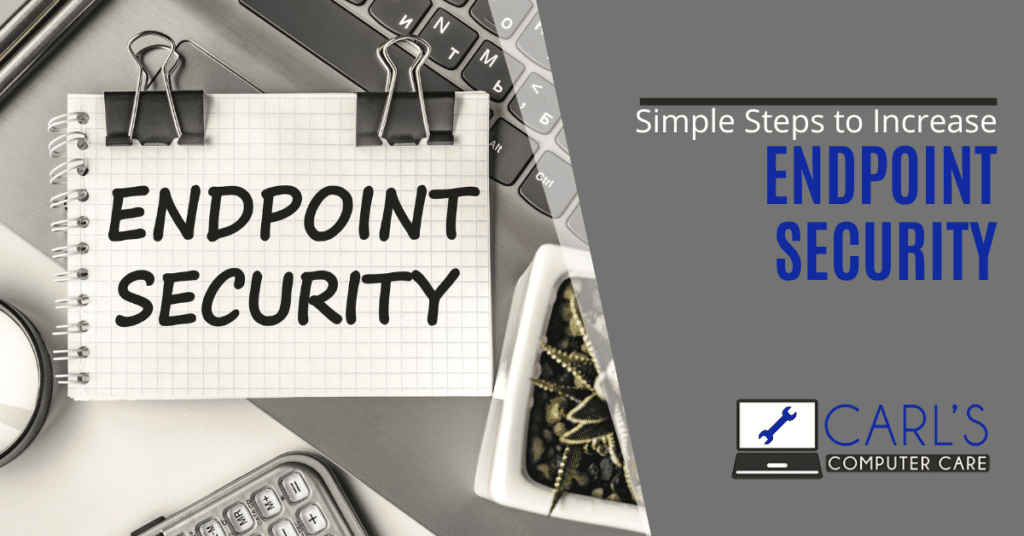
As the number of endpoint attacks has increased, so has the demand for more advanced endpoint security solutions. Endpoint security solutions are now designed to detect, analyze, and stop active threats in progress.
Endpoint security, in a nutshell, refers to the protection of endpoints against unauthorized access, misuse, alteration, or destruction at the hands of malware-assisted hackers. An endpoint is any device with network connectivity in your business.
According to recent research, 68% of organizations, regardless of size, are vulnerable to attacks from hacktivists, nation-states, organized crime, and malicious and unintentional insiders. Therefore, one of the first places organizations defend in workplace networks is endpoint security, which is frequently viewed as the frontline of cybersecurity.
Importance of End Point Security to Organizations
Endpoint devices are any equipment linked over the internet to the network that serves as the technical part of your company. This devices refers to your desktop computers, laptops, cellphones, point-of-sale systems, printers, scanners, and tablets. Anything your workers do use to interact and share data is potentially vulnerable to cyberattacks.
To reduce risk, organizations should plan for the possibility of endpoint device compromise and take steps to lessen the impact of any subsequent attacks that may come from such devices. The following are the importance of endpoint security;
Endpoint Security Prevents Data Breaches;
Remote working increases the utilization of endpoints, which has an impact on network security. Endpoints facilitate illegal access, primarily because they can be left in a default condition or alter network security posture through misconfiguration.
Endpoint security measures should be implemented to prevent data breaches within the organization. Suppose these measures fail. There are alerts to signal the presence of a possible threat at any point.
Endpoint Security Prevents Insider Threats
Insider threats can occur unintentionally. Someone can unintentionally commit a security breach and never realize they’ve committed such.
When there are a lot of third parties participating, it might be challenging to keep a network’s integrity. Using contractors and suppliers is vital for many businesses, but it exposes the network to potential security threats.
Manually monitoring these sorts of issues among staff is simply impossible. This is why endpoint security is so critical. Thus, endpoint security can prevent any vulnerabilities that arise as a result of such basic mistakes. Endpoint protection is the most effective way to keep these errors from becoming a security problem.
Endpoint Security Prevents Data and Financial Loss
The consequence of endpoint security breaches extends beyond monetary loss. High potential costs, company downtime, damaged reputations, and other implications of these attacks are enough to cause seemingly steady and profitable organizations to declare bankruptcy. Endpoint security is the first step in ensuring your organization is effectively protected and safe from cybercriminals.
Steps to Increase Endpoint Security
Endpoint security has become increasingly important. Administrators have control over the software configured and installed on their servers. But they have little control over endpoints, which are the computers and other devices users use to access software and data. Still, there are ways to lessen the impact of unsecured threats and boost endpoint security. Here are some simple steps.
Verification of endpoints
The first step in developing endpoint security is determining which endpoints are in your system. Many firms allow employees to bring their own devices to work, and IoT gadgets such as smartwatches and personal mobile phones are difficult to monitor. Organizations may regulate and safeguard the devices they issue and utilize in the workplace.
All endpoints in your company should be protected as part of your strategy. This includes endpoints such as printers and tablets, typically overlooked as high risk. However, hackers can target them or use them as an entry point to move across the business laterally. Endpoint protection is compromised when these devices are not secured.
Keep Reliable Backups
Understanding that even the most secure endpoints are vulnerable to ransomware and other types of malware is critical. It can be as simple as clicking links in a suspicious email, which leads to a whole network of poorly linked devices being held ransom.
Maintaining dependable backups and checking them regularly is the only way to ensure that no essential business information is lost if a device is compromised. And no ransom is required.
The Use of VPN
One of the most effective ways of securing endpoints is to restrict access to internal company resources to devices that are physically situated within the network. If remote access is essential, use a VPN protected by multi-factor authentication.
This guarantees that if a device is lost or stolen and tries to connect to private company resources, the connection will be impossible, and data will be safe.
Regular Patching
The server and endpoints will be susceptible if you don’t patch and update the software since patches and updates resolve security issues. Because software flaws are frequently leveraged by attackers who have acquired access via a compromised endpoint for privilege escalation, patching the server is essential.
Ready to Increase Your Endpoint Security?
Suppose you have difficulty keeping up with recent endpoint security and administration techniques. In that case, Carl’s Computer Care is here and ready to help with all your technology needs!
Contact us to book a schedule.
